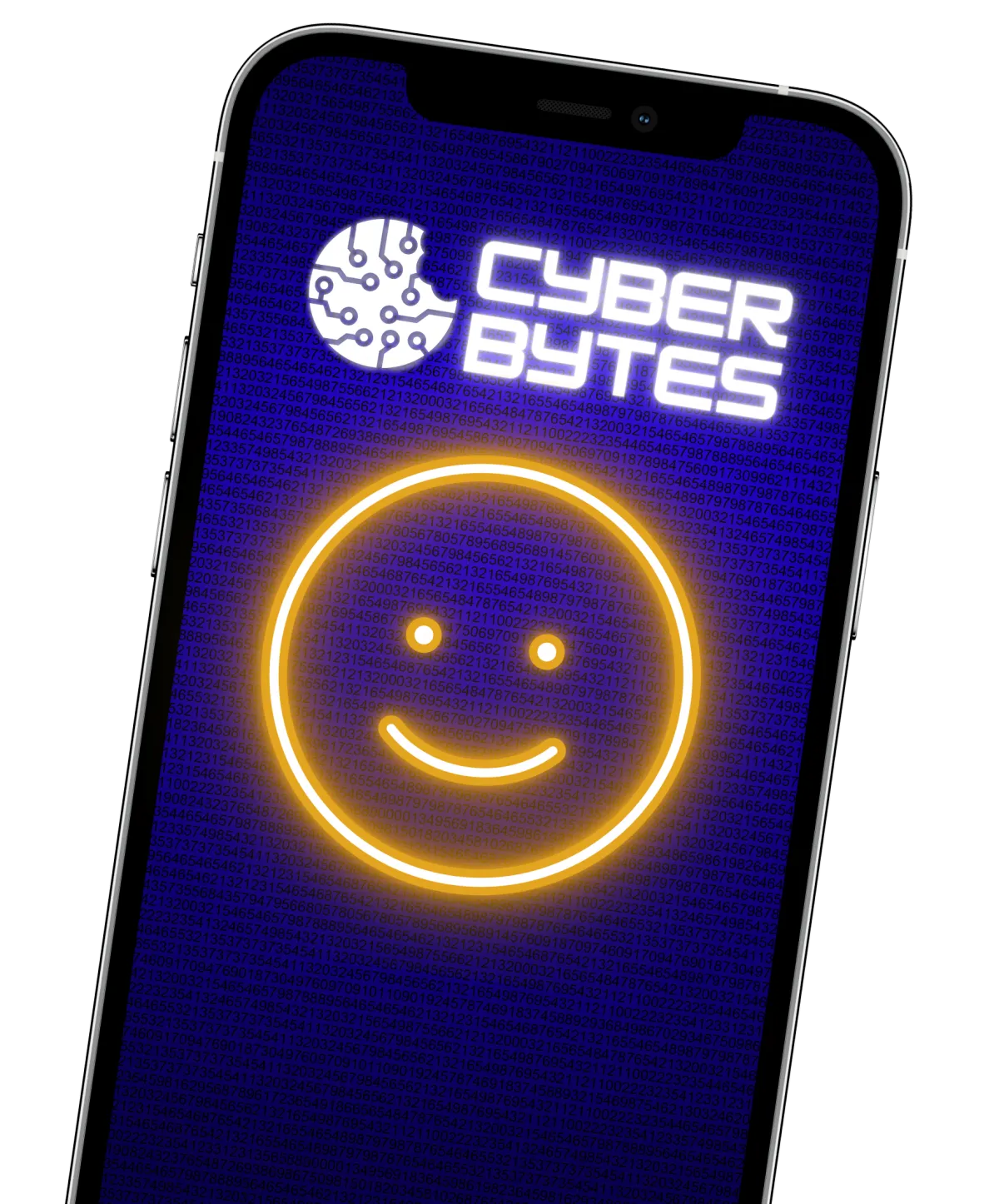You are what you click!
Learn how to make cybersecurity your way of life in an easy and guided way.
You are what you click!
Become Cyber savvy
EXPLORE BLOG BELOW
You are what you click!
Become Cyber savvy
You are what you click!
Become Cyber savvy
You are what you click!
Become Cyber savvy

From Overwhelmed to In Control: A Mom's Cyber Journey
From Overwhelmed to In Control: A Mom's Cyber Journey
In an era where the digital landscape is as vast as it is treacherous, Sarah Thompson found herself standing at the edge of a precipice. As a mother of three in suburban Boston, she had always prided herself on keeping her family safe—but the online world presented a challenge unlike any she had faced before. This is the story of how one determined mom went from feeling overwhelmed by the complexities of cybersecurity to becoming a beacon of digital safety for her family and community.
The Wake-Up Call: When the Virtual World Hits Home
It was a typical Tuesday afternoon when Sarah's 12-year-old son, Jake, came home from school visibly upset. A classmate had shared an embarrassing photo of him online, and within hours, it had spread across multiple social media platforms. As Sarah comforted her son, a chilling realization washed over her: she was woefully unprepared to navigate the murky waters of online safety.
"I felt like I had failed as a parent," Sarah confesses. "Here I was, making sure my kids wore helmets when they rode their bikes, but I had completely overlooked the dangers lurking in their devices." This incident became the catalyst for Sarah's journey into the world of cybersecurity—a journey that would not only transform her family's online habits but also inspire a community-wide movement.
Taking the First Steps: Education and Empowerment
Determined to protect her family, Sarah embarked on an intensive self-education program. She devoured books on internet safety, attended local workshops, and even enrolled in an online course offered by a renowned cybersecurity expert. "It was overwhelming at first," she admits. "There was so much to learn, from privacy settings to recognizing phishing attempts. But I kept reminding myself that every bit of knowledge was another layer of protection for my kids."
As Sarah's understanding grew, so did her confidence. She began implementing changes at home, starting with a family meeting to discuss online safety. "I wanted my kids to see this as a collaborative effort, not just another set of rules," she explains. Together, they created a family internet agreement, outlining expectations for online behavior and setting boundaries for device usage.
Tip #1: Start with Open Communication
Sarah emphasizes the importance of creating an environment where children feel comfortable discussing their online experiences. "We have weekly 'tech talks' where we share interesting things we've seen online, but also any concerns or questions we might have," she says. This open dialogue has been crucial in catching potential issues early and fostering a sense of trust between parents and children.
Building a Digital Fortress: Practical Steps for Family Protection
Armed with knowledge, Sarah set about fortifying her family's digital presence. She likens the process to building a castle, with each security measure acting as another defensive wall against potential threats.
Tip #2: Implement Strong Password Practices
One of the first changes Sarah made was to overhaul the family's password habits. "We used to use the same simple password for everything," she admits sheepishly. "Now, we use a password manager to generate and store unique, complex passwords for each account." She also introduced two-factor authentication wherever possible, adding an extra layer of security to their most important accounts.
Tip #3: Secure Your Home Network
Recognizing that their home Wi-Fi was the gateway to their online world, Sarah took steps to secure it. She changed the default router password, enabled WPA3 encryption, and set up a guest network for visitors. "I even went as far as to hide our network name," she says. "It's a small step, but it makes our network less visible to potential attackers."
Tip #4: Educate on Social Media Privacy
Social media presented a particular challenge, especially with her teenage daughter. Sarah worked with her to review and adjust privacy settings on all platforms. "We went through each app, discussing what information was being shared and with whom," she explains. "It was an eye-opening experience for both of us." They also talked about the permanence of online posts and the importance of thinking critically before sharing anything.

From Personal Mission to Community Movement
As Sarah's confidence grew, so did her desire to share her knowledge with others. She started a blog documenting her family's cyber journey, which quickly gained a following among local parents. Encouraged by the response, Sarah approached her children's school about hosting a cybersecurity workshop for families.
"The turnout was incredible," she recalls. "There were so many parents who felt just as lost as I had been." The success of this initial workshop led to a series of monthly meetings, where parents could share experiences and learn from each other. Sarah brought in guest speakers, including local law enforcement and cybersecurity professionals, to provide expert insights.
Tip #5: Stay Informed and Connected
Sarah stresses the importance of staying up-to-date with the latest cybersecurity trends and threats. "The online landscape is constantly evolving, and so should our protection strategies," she advises. She recommends following reputable cybersecurity blogs, subscribing to alert services from trusted organizations, and participating in community forums focused on online safety.
The Journey Continues: Adapting to New Challenges
As her children grow and technology advances, Sarah knows that her family's cyber journey is far from over. "Each new app, each new device brings its own set of challenges," she acknowledges. "But now, instead of feeling overwhelmed, we face these challenges as a family, with confidence and knowledge."
Sarah's story is a testament to the power of determination and education in the face of seemingly insurmountable digital challenges. From a mom who once felt helpless in the face of online threats, she has become a pillar of cybersecurity knowledge in her community.
Conclusion: Empowering Families in the Digital Age
As we navigate the complex digital landscape of the 21st century, stories like Sarah's serve as beacons of hope and practical guidance. Her journey from overwhelmed parent to cyber-savvy protector offers valuable lessons for families everywhere:
Educate yourself continuously about online safety and cybersecurity.
Foster open communication with your children about their online experiences.
Implement strong security measures, starting with passwords and network protection.
Teach critical thinking skills for social media use and online interactions.
Connect with your community to share knowledge and support each other.
By taking these steps, parents can move from feeling overwhelmed to being in control of their family's digital life. As Sarah's experience shows, the journey to cyber safety is ongoing, but with the right tools and mindset, it's a journey that every family can successfully navigate together.
In the end, Sarah's message to other parents is clear: "You don't have to be a tech expert to protect your family online. With patience, perseverance, and a willingness to learn, any parent can become their family's cyber guardian."

Live Happily Ever Cyber!

Sandra Estok
Subscribe for more ways to protect what matters most to you against hackers, scammers, and Cybermonsters™
Latest blog posts:

From Overwhelmed to In Control: A Mom's Cyber Journey
From Overwhelmed to In Control: A Mom's Cyber Journey
In an era where the digital landscape is as vast as it is treacherous, Sarah Thompson found herself standing at the edge of a precipice. As a mother of three in suburban Boston, she had always prided herself on keeping her family safe—but the online world presented a challenge unlike any she had faced before. This is the story of how one determined mom went from feeling overwhelmed by the complexities of cybersecurity to becoming a beacon of digital safety for her family and community.
The Wake-Up Call: When the Virtual World Hits Home
It was a typical Tuesday afternoon when Sarah's 12-year-old son, Jake, came home from school visibly upset. A classmate had shared an embarrassing photo of him online, and within hours, it had spread across multiple social media platforms. As Sarah comforted her son, a chilling realization washed over her: she was woefully unprepared to navigate the murky waters of online safety.
"I felt like I had failed as a parent," Sarah confesses. "Here I was, making sure my kids wore helmets when they rode their bikes, but I had completely overlooked the dangers lurking in their devices." This incident became the catalyst for Sarah's journey into the world of cybersecurity—a journey that would not only transform her family's online habits but also inspire a community-wide movement.
Taking the First Steps: Education and Empowerment
Determined to protect her family, Sarah embarked on an intensive self-education program. She devoured books on internet safety, attended local workshops, and even enrolled in an online course offered by a renowned cybersecurity expert. "It was overwhelming at first," she admits. "There was so much to learn, from privacy settings to recognizing phishing attempts. But I kept reminding myself that every bit of knowledge was another layer of protection for my kids."
As Sarah's understanding grew, so did her confidence. She began implementing changes at home, starting with a family meeting to discuss online safety. "I wanted my kids to see this as a collaborative effort, not just another set of rules," she explains. Together, they created a family internet agreement, outlining expectations for online behavior and setting boundaries for device usage.
Tip #1: Start with Open Communication
Sarah emphasizes the importance of creating an environment where children feel comfortable discussing their online experiences. "We have weekly 'tech talks' where we share interesting things we've seen online, but also any concerns or questions we might have," she says. This open dialogue has been crucial in catching potential issues early and fostering a sense of trust between parents and children.
Building a Digital Fortress: Practical Steps for Family Protection
Armed with knowledge, Sarah set about fortifying her family's digital presence. She likens the process to building a castle, with each security measure acting as another defensive wall against potential threats.
Tip #2: Implement Strong Password Practices
One of the first changes Sarah made was to overhaul the family's password habits. "We used to use the same simple password for everything," she admits sheepishly. "Now, we use a password manager to generate and store unique, complex passwords for each account." She also introduced two-factor authentication wherever possible, adding an extra layer of security to their most important accounts.
Tip #3: Secure Your Home Network
Recognizing that their home Wi-Fi was the gateway to their online world, Sarah took steps to secure it. She changed the default router password, enabled WPA3 encryption, and set up a guest network for visitors. "I even went as far as to hide our network name," she says. "It's a small step, but it makes our network less visible to potential attackers."
Tip #4: Educate on Social Media Privacy
Social media presented a particular challenge, especially with her teenage daughter. Sarah worked with her to review and adjust privacy settings on all platforms. "We went through each app, discussing what information was being shared and with whom," she explains. "It was an eye-opening experience for both of us." They also talked about the permanence of online posts and the importance of thinking critically before sharing anything.

From Personal Mission to Community Movement
As Sarah's confidence grew, so did her desire to share her knowledge with others. She started a blog documenting her family's cyber journey, which quickly gained a following among local parents. Encouraged by the response, Sarah approached her children's school about hosting a cybersecurity workshop for families.
"The turnout was incredible," she recalls. "There were so many parents who felt just as lost as I had been." The success of this initial workshop led to a series of monthly meetings, where parents could share experiences and learn from each other. Sarah brought in guest speakers, including local law enforcement and cybersecurity professionals, to provide expert insights.
Tip #5: Stay Informed and Connected
Sarah stresses the importance of staying up-to-date with the latest cybersecurity trends and threats. "The online landscape is constantly evolving, and so should our protection strategies," she advises. She recommends following reputable cybersecurity blogs, subscribing to alert services from trusted organizations, and participating in community forums focused on online safety.
The Journey Continues: Adapting to New Challenges
As her children grow and technology advances, Sarah knows that her family's cyber journey is far from over. "Each new app, each new device brings its own set of challenges," she acknowledges. "But now, instead of feeling overwhelmed, we face these challenges as a family, with confidence and knowledge."
Sarah's story is a testament to the power of determination and education in the face of seemingly insurmountable digital challenges. From a mom who once felt helpless in the face of online threats, she has become a pillar of cybersecurity knowledge in her community.
Conclusion: Empowering Families in the Digital Age
As we navigate the complex digital landscape of the 21st century, stories like Sarah's serve as beacons of hope and practical guidance. Her journey from overwhelmed parent to cyber-savvy protector offers valuable lessons for families everywhere:
Educate yourself continuously about online safety and cybersecurity.
Foster open communication with your children about their online experiences.
Implement strong security measures, starting with passwords and network protection.
Teach critical thinking skills for social media use and online interactions.
Connect with your community to share knowledge and support each other.
By taking these steps, parents can move from feeling overwhelmed to being in control of their family's digital life. As Sarah's experience shows, the journey to cyber safety is ongoing, but with the right tools and mindset, it's a journey that every family can successfully navigate together.
In the end, Sarah's message to other parents is clear: "You don't have to be a tech expert to protect your family online. With patience, perseverance, and a willingness to learn, any parent can become their family's cyber guardian."

Live Happily Ever Cyber!

Sandra Estok
Subscribe for more ways to protect what matters most to you against hackers, scammers, and Cybermonsters™
Stop Hackers, Scammers and Cybermonsters in their tracks.
Take charge of your Cyber Life today!
Push Cybermonsters away from your private data.
Subscribe to my newsletter about cybersecurity and cyber safety. New issues every Tuesday.




